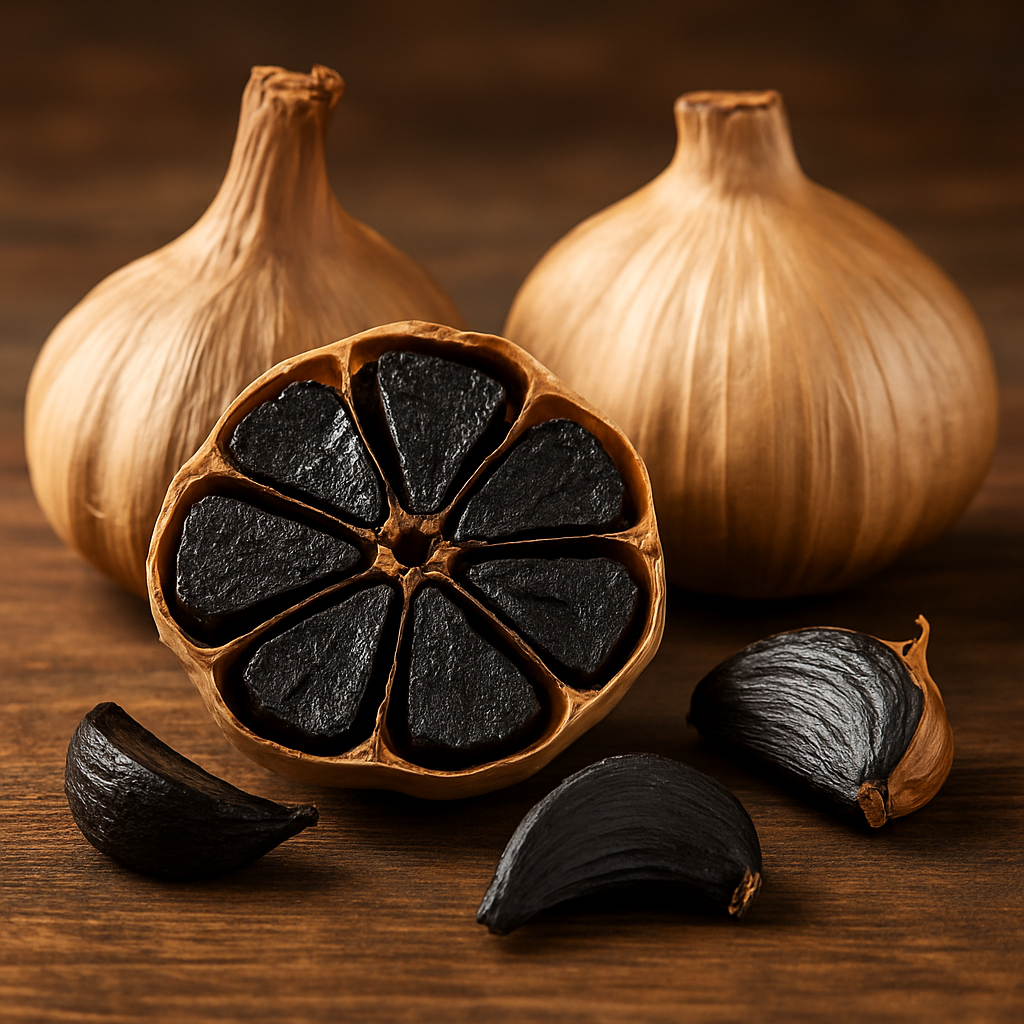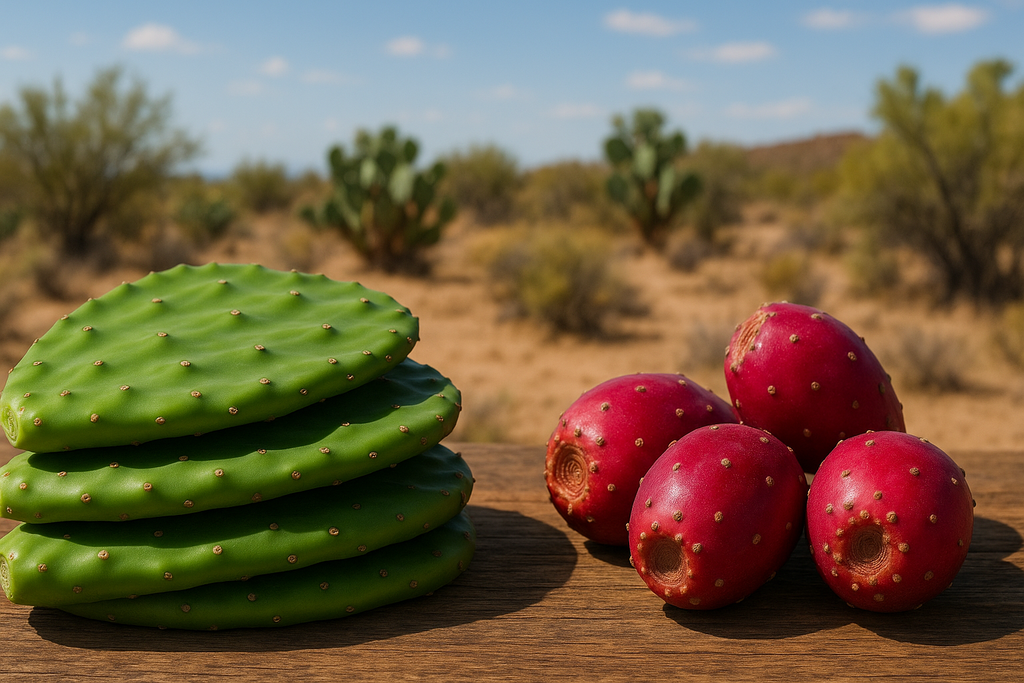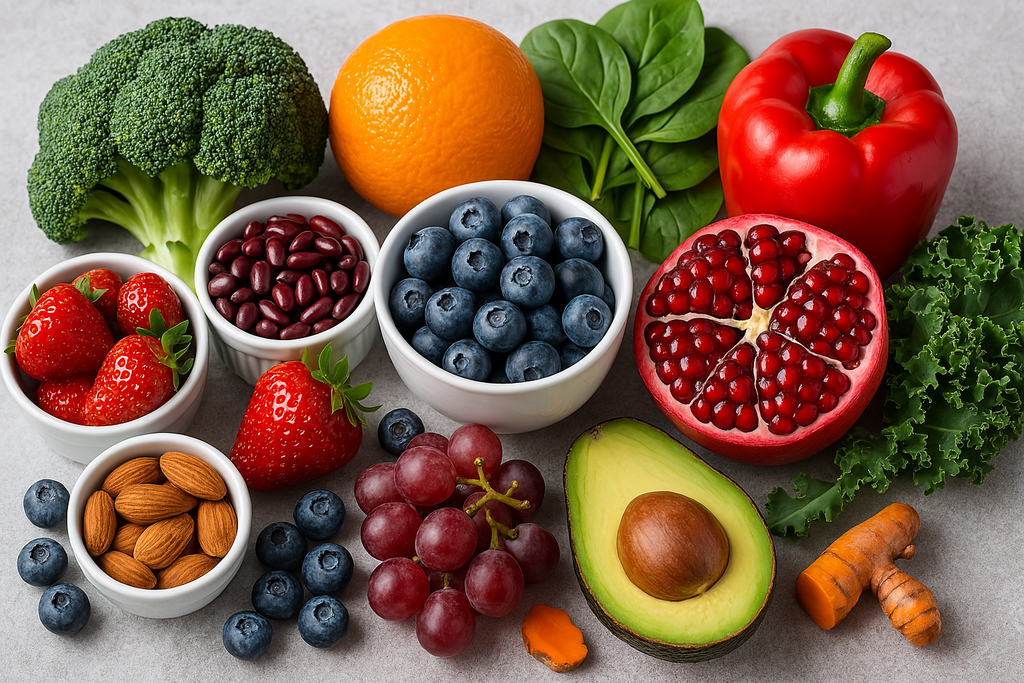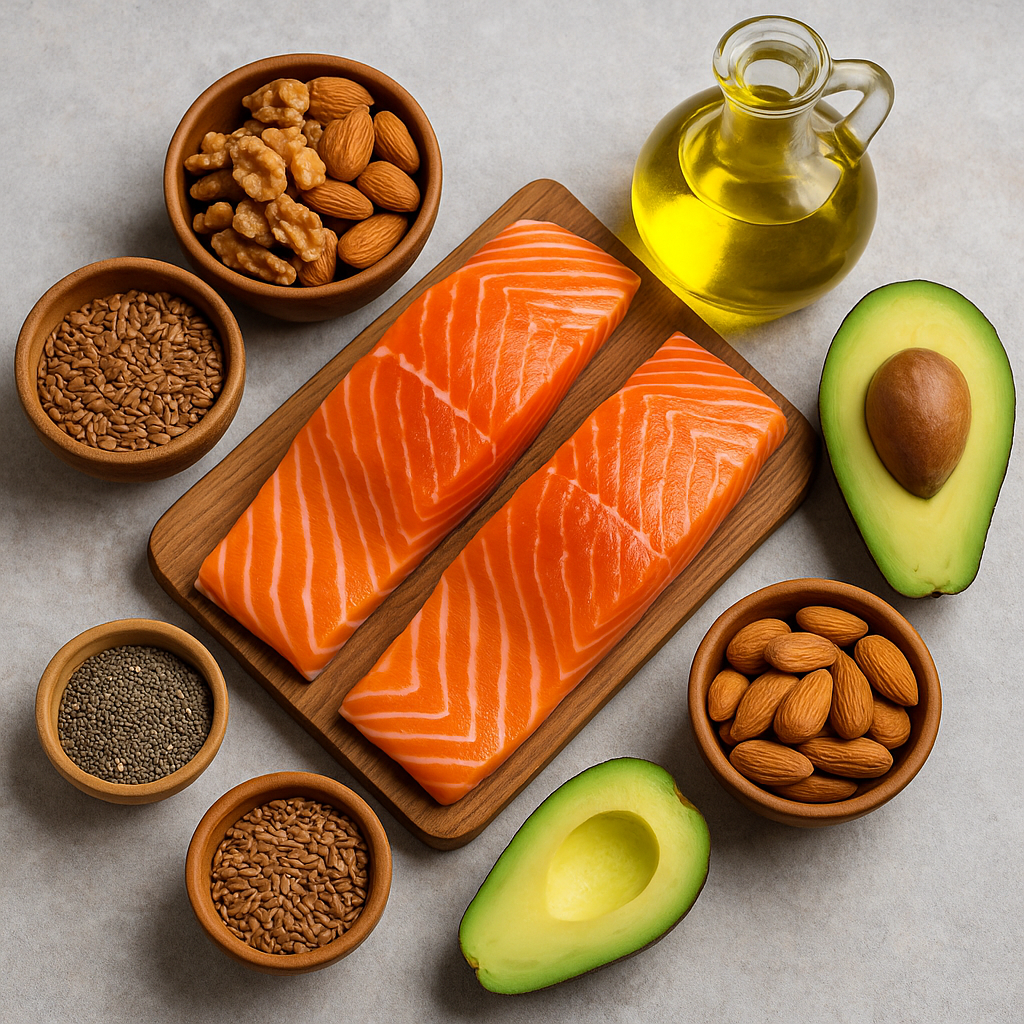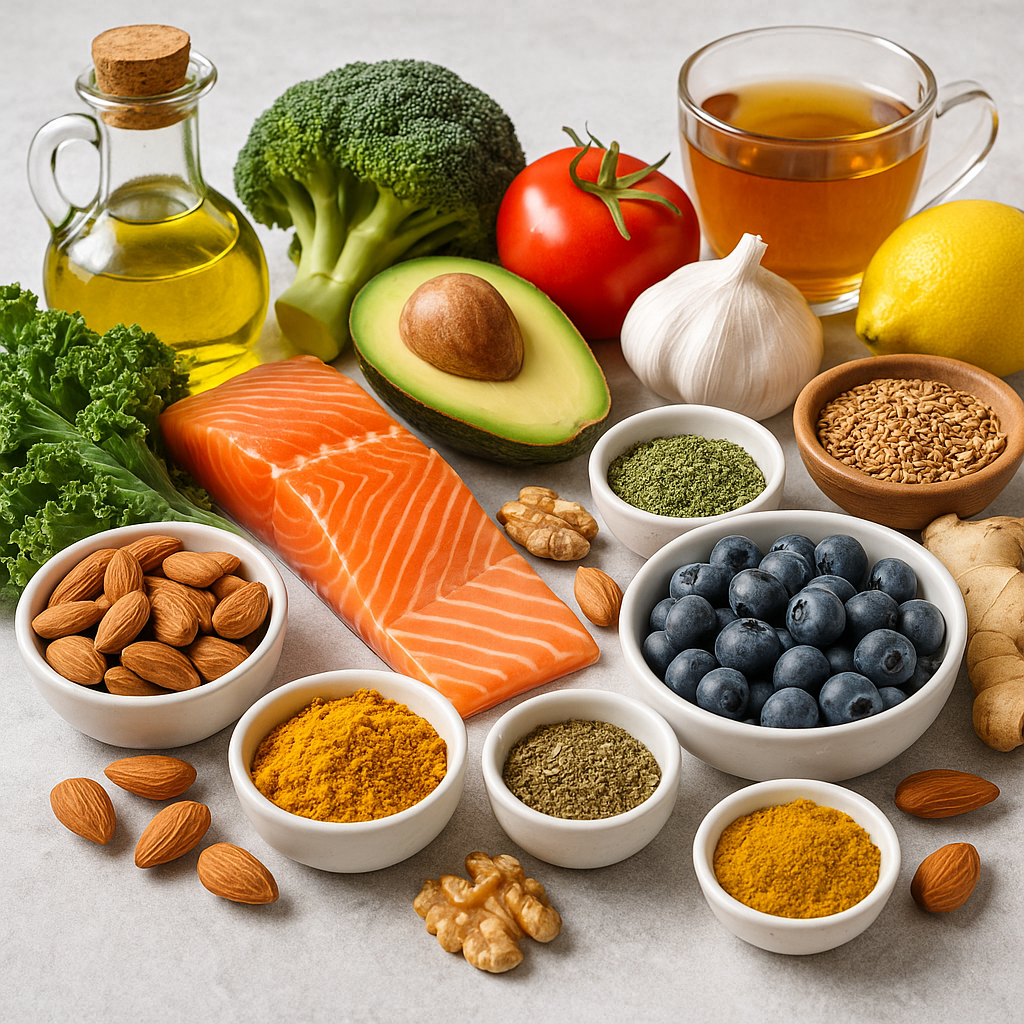News — anti-inflammatory foods
The Fermented Secret: Discover the Health Benefits of Black Garlic
aged garlic anti-inflammatory foods black garlic black garlic benefits black garlic nutrition black garlic supplements black garlic uses black garlic vs raw garlic fermented foods fermented garlic garlic antioxidant garlic extract garlic fermentation garlic for blood pressure garlic for diabetes garlic superfood heart health immune support natural health foods S-allyl cysteine
Few superfoods have risen through the ranks as quickly—and as deliciously—as black garlic. With its deep, savory flavor and soft, spreadable texture, black garlic is far more than a culinary delight. This fermented form of traditional garlic is gaining global recognition for its powerful health benefits, which include antioxidant support, immune enhancement, and even heart health protection.
Black garlic isn’t just aged garlic—it’s a carefully fermented product that transforms the chemical makeup of the original bulb. The result? A sweeter, less pungent, and more nutrient-dense form of garlic that’s taking health-conscious kitchens and supplement shelves by storm. Whether you’re a wellness enthusiast or a flavor fanatic, understanding how black garlic became a nutritional powerhouse could change the way you think about this humble ingredient.
Prickly Pear Cactus: A Natural Remedy for Blood Sugar Control
anti-inflammatory foods antioxidants blood sugar control cactus pads desert superfood glucose regulation heart health insulin sensitivity low glycemic foods natural blood sugar management nopales Opuntia plant-based diabetes support polyphenols prickly pear cactus prickly pear supplements soluble fiber traditional medicine tunas type 2 diabetes natural remedy
Growing wild under the hot sun in arid landscapes, the prickly pear cactus is more than just a striking desert plant. Known scientifically as Opuntia, it has been a staple in traditional diets and medicines across the Americas for centuries. Its vibrant pads and sweet, jewel-toned fruits aren’t just visually appealing—they’re packed with nutrients and unique plant compounds that may hold the key to better blood sugar control.
As the rates of type 2 diabetes and prediabetes continue to rise globally, interest in natural, food-based strategies for blood sugar management has never been greater. The prickly pear cactus, with its fiber-rich pads (nopales) and antioxidant-filled fruits (tunas), has captured the attention of researchers for its ability to slow carbohydrate absorption, improve insulin sensitivity, and help maintain more stable glucose levels. This desert treasure might just be a powerful ally in modern metabolic health.
The Best Antioxidant-Rich Foods for Skin and Overall Health
anti-aging foods anti-inflammatory foods antioxidant supplements antioxidant-rich foods antioxidants best antioxidants for skin collagen boost free radicals fruits for skin glowing skin diet green tea benefits healthy eating healthy lifestyle natural skincare omega-3s polyphenols skin health vegetables for skin vitamin C vitamin E
Antioxidants are nature’s secret weapon in the fight against aging, inflammation, and chronic disease. These powerful compounds help neutralize free radicals—unstable molecules that can damage your cells and accelerate skin aging, weaken your immune system, and contribute to numerous health issues. Incorporating antioxidant-rich foods into your diet is a proactive way to support both radiant skin and robust overall health.
In today’s fast-paced world, stress, pollution, and processed foods can deplete our body’s natural defenses. That’s where antioxidants step in. From vibrant berries to dark leafy greens and even indulgent dark chocolate, nature offers a colorful palette of delicious options packed with protective nutrients. This article will explore the top antioxidant-rich foods that promote glowing skin, boost immunity, and enhance longevity—making it easier than ever to nourish your body from the inside out.
The Silent Protector: Why Omega-3s Are Non-Negotiable for Heart Disease Prevention
algal oil anti-inflammatory foods arrhythmia prevention best omega-3 sources blood pressure control cardiovascular health cardiovascular protection cholesterol balance EPA DHA benefits fish oil supplements healthy fats heart disease prevention heart health supplements heart rhythm regulation krill oil omega-3 benefits omega-3 deficiency omega-3 fatty acids plaque buildup prevention triglycerides reduction
Heart disease remains one of the leading causes of death worldwide, often striking without warning and altering lives in an instant. While many factors contribute to cardiovascular health, one nutrient consistently stands out for its protective benefits: omega-3 fatty acids. Often referred to as the "silent protector," omega-3s quietly work behind the scenes, fortifying the heart and circulatory system against numerous threats.
Despite their well-documented advantages, many people overlook the importance of omega-3s in their daily diets. As modern lifestyles gravitate toward processed foods and poor nutritional habits, ensuring adequate intake of these vital fats becomes not just beneficial but essential. This article delves into the profound role omega-3s play in heart disease prevention and why incorporating them into your routine is a non-negotiable step toward lifelong cardiovascular health.
Scientific Evidence: How an Anti-Inflammatory Diet Improves Health
anti-inflammatory diet anti-inflammatory foods anti-inflammatory herbs anti-inflammatory lifestyle autoimmune diet blood sugar control chronic inflammation curcumin food as medicine gut health health supplements inflammation and brain inflammation and heart disease inflammation reduction joint pain relief LongLifeNutri Mediterranean diet omega-3 benefits reduce CRP turmeric supplements
Chronic inflammation is increasingly recognized as a silent contributor to a wide range of health problems — from fatigue and joint pain to heart disease, diabetes, and even cognitive decline. While inflammation is the body’s natural response to injury or infection, persistent low-grade inflammation can damage tissues and disrupt normal functioning. Fortunately, one of the most effective ways to combat this is through diet.
An anti-inflammatory diet emphasizes whole, nutrient-rich foods that help regulate the immune response and reduce oxidative stress. Backed by mounting scientific evidence, this way of eating has been shown to lower the risk of chronic disease, support gut health, and promote overall vitality. In this article, we’ll explore the science behind the anti-inflammatory diet, key foods to embrace or avoid, and how to implement these changes for long-term health benefits.

